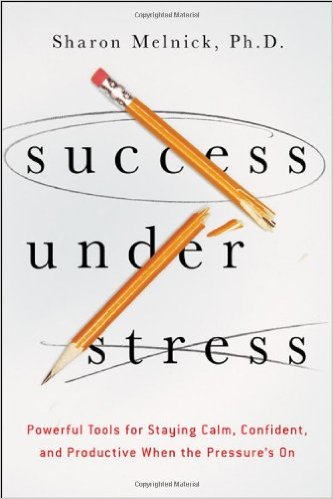5 Ways to Make Sure Your Job Works for You
In today’s overly competitive workplace, it is easy to become enslaved by your job, believing that you have to give it all in order to stay afloat in the job market. But at the end of the day, if your job is not working for you, in the sense of enhancing your life, but is merely a means to an end, and if you are not enjoying what you’re doing, then life truly is too short for that kind of job. It is only by being true to yourself that you can grow and prosper in this life, and enjoyment is the quickest way of knowing that what you’re doing is aligned with your inner most needs, wants and desires. It’s only then that what you are doing is worth doing!
Here are five suggestions to make sure your job works for you and not the other way around:
1. Assess your priorities in life
Look at the whole of your life and where does work fall within the spectrum. Don’t start from ‘I have to work’ and put it at the top of the list. Instead, be authentic with yourself and decide how important work is for you in the scheme of things. Even if you find that there are other things that you would rather do than work but you still cannot afford to stop working, being authentic improves your chances of enjoying what you’re doing and gives you a different experience from ‘I have to work’ which turns work into drudgery.
2. Find out what really inspires you in life
Do you have a family that you would like to spend more time with? A hobby, or a passion in life, be it music, sports, writing, etc. that you wish you have more time for?
Once you have clarity on what experiences would be life enhancing for you, and so you would like to spend more time doing, share that with your colleagues and superiors. Be open about your passions; never hide them whatever the circumstances.
When we are open about our passions, life has a way of making them happen. We have more clarity about what choices are available to us in life, and we start to choose more powerfully. You may find a similar job that is more flexible, or you may decide you are in the wrong line of work or the wrong company altogether. Or you may get to stay in your job but get the opportunity to work more flexibly, if you can convince everyone you work with that you can still produce the results expected from you at work, which brings us to point number 3.
3. Assert your own needs at work
Most of us are afraid to do that because we don’t want to get fired or, at least, we don’t want our superiors to think that we are not 100% committed to the company. You need to disengage from this zero-sum mentality, even if it is the prevailing culture in your work.
Start by asserting to your superiors that you are committed to your work, because let’s face it unless you are committed to whatever you are doing you will not succeed. Even if your job is a means to an end, be a 100% committed to doing your best, which will not only give you superior results, but it will also help you enjoy yourself while you’re working. Drudgery creates boredom and tiredness, whereas commitment creates enthusiasm and happiness. Which one would you choose?
After asserting to your boss that you have every intention of serving the company’s objectives to the best of your abilities, share with her/him that you genuinely believe that the best way to maximize your chances of achieving the company’s objectives is by feeling supported yourself. This is true because when we are supported, we feel considerably less stress, and we become far more productive at work and creative in finding solutions for the business. Then invite her/him to support you in whatever has become evident to you that you need to do in order to have a fulfilling life. This may be asking for two hours off a week or two days off a week, depending on your life circumstance.
4. Ask your superior to quantify your output
Have an open conversation with your superior about how your work fits into the company’s goals. Ask her/him to clarify what they expect from you exactly and if possible to quantify the output and the time by which they need it done. Assert that you will meet this output in the required time, and ask to be given complete flexibility in how and when you do the work. This allows you to wrap your work around your life and not the other way around!
5. Ask your superior to mentor you into doing your job more effectively
Managers usually have a wealth of skill and experience that they don’t necessarily impart on their employees because they are busy managing. But it serves everyone better if these skills were transferred to as many employees as possible. So don’t hesitate to ask your superior to mentor you in how to do your job more efficiently. Women especially seem to lack mentoring at work, generally speaking, for various reasons outside our scope here. Also, to you doing a better job at work, being mentored by your superior will help her, or him feel more valued, not to mention creating a bond between you two.
If it fits in the business’s overall policy, maybe you can ask for extra training. Whenever you request an enhancement of your abilities, make sure they know that your objective is to maximise your chances of meeting the business’s goals. This is true because it is a win-win situation: the more productive you are at work, the more time you have to focus on your own passions outside work.
A quick word on productivity and its definition, because this can surprisingly be confused: productivity is either producing more results in the same amount of time or, more importantly in our context, producing the same results in less time.
A final piece of advice, the only way you can make these things happen is if you believe in yourself. Otherwise, no one will believe in you. Unless you genuinely believe in yourself, you will not be able to assert your needs at work or get the support you need. You must be your best fan or champion, your very own hero. Why would anyone believe in you if you don’t believe in yourself? So it is worth doing some soul searching if you feel that you don’t deserve support at work, to see if this is the business’s culture or your own conversation about yourself.
Whenever I have self-doubt, I always find it useful to ask myself: if my daughter was in this situation, what would I like her to do? And then I chose to be her role model by doing what I would have advised her to do. Think of someone you really care about and play the same mind game. Do whatever you need to do to support yourself in choosing powerfully, and don’t let your own negative self-beliefs be your guide.




